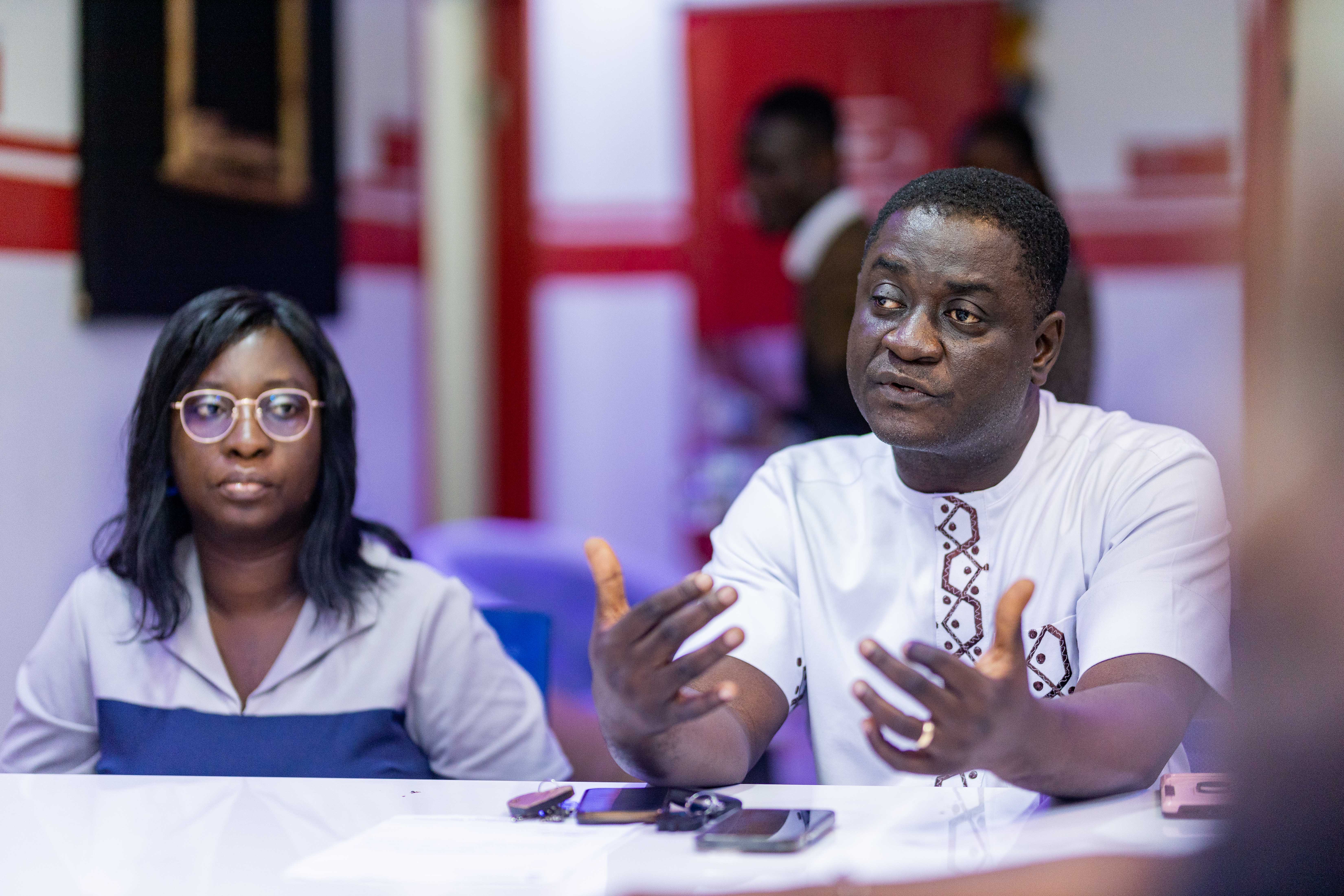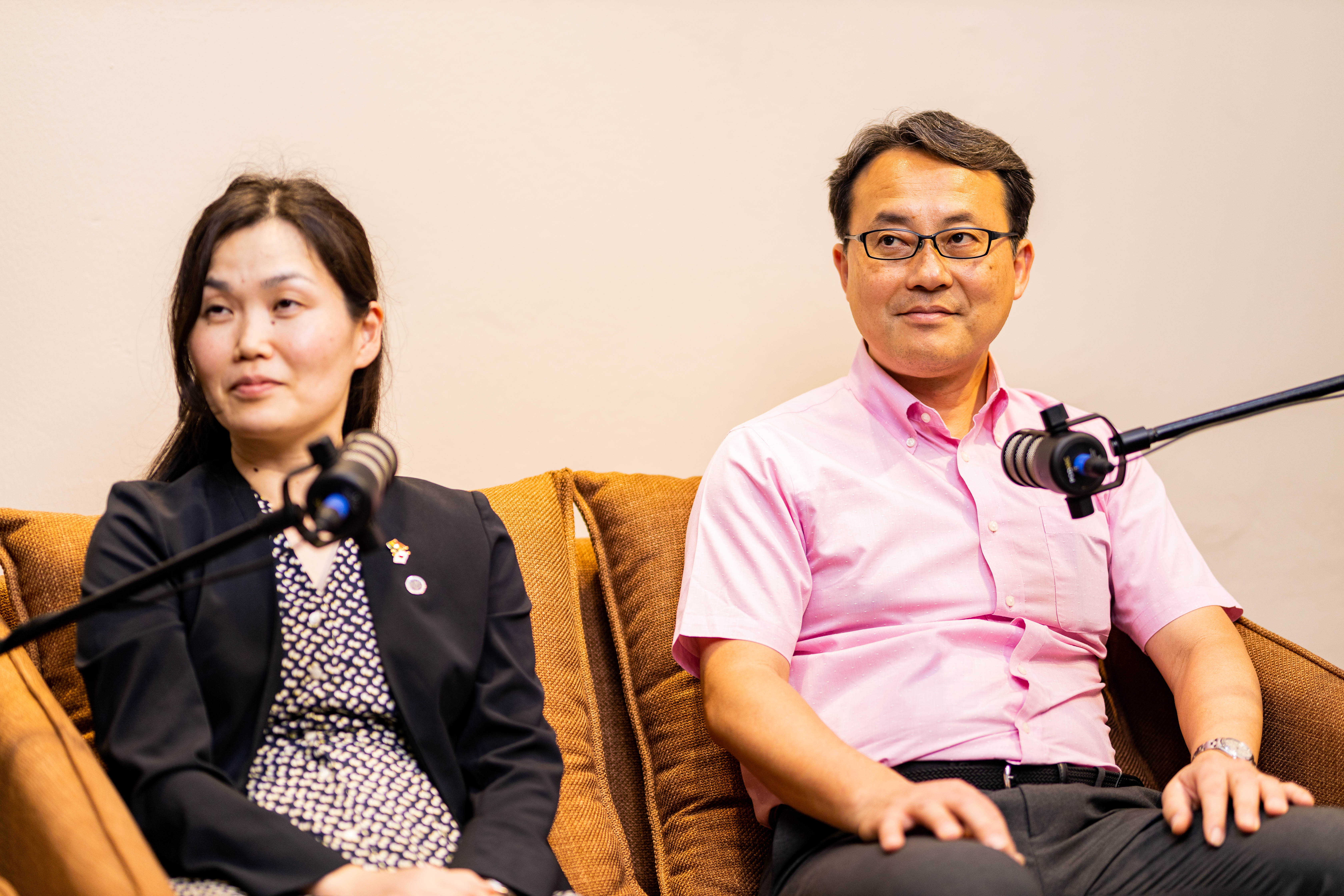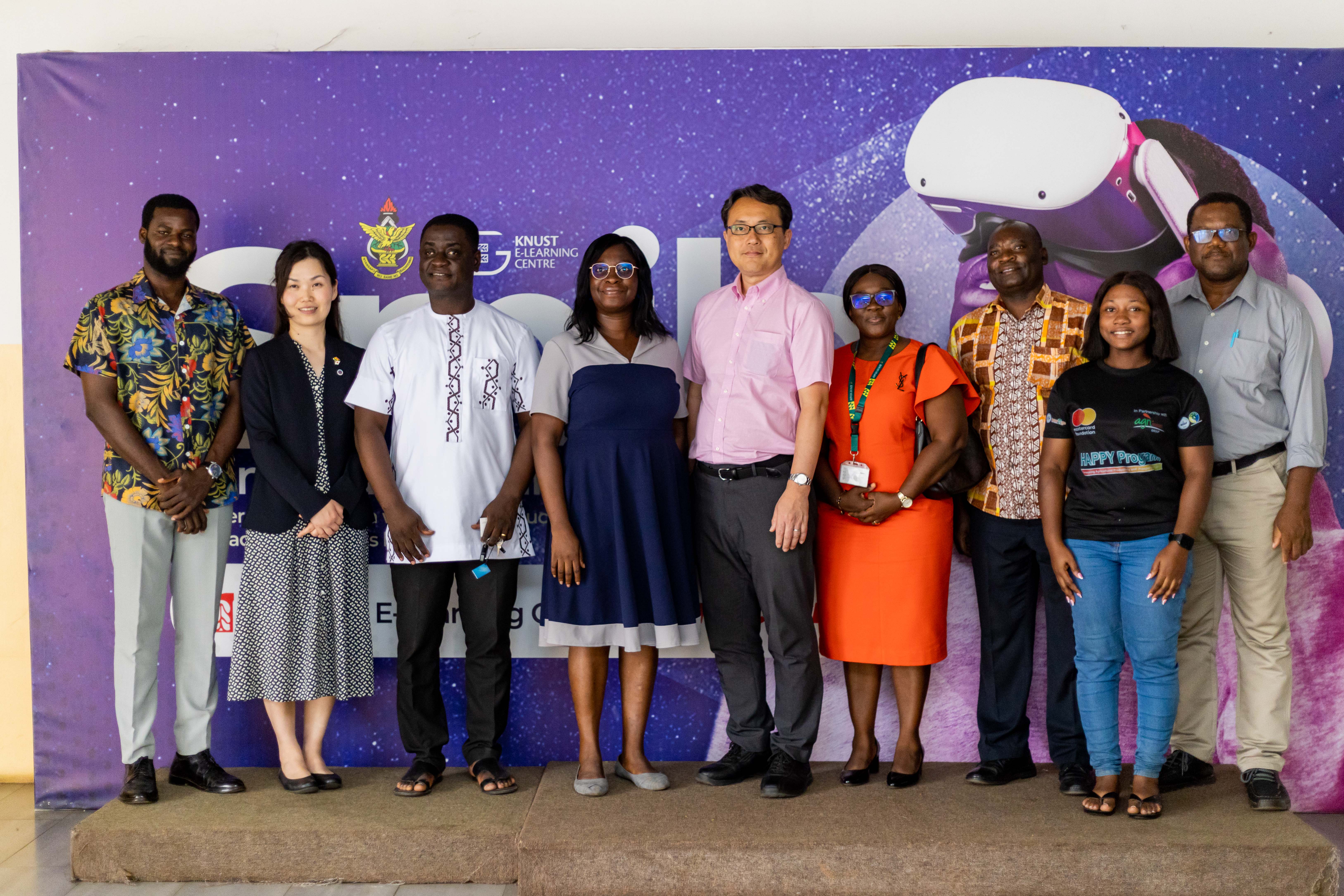KNUST E-Learning Centre and University of Tsukuba explore virtual Learning, student mobility and virtual reality collaborations
“People now move to places their passports have not reached, but they still encounter powerful learning experiences.”
This remark by Professor Eric Appau Asante, Director of the KNUST E-Learning Centre, set the tone for an academic engagement when a team from the University of Tsukuba, Japan, visited the KNUST E-Learning Centre to explore partnerships in online learning, student mobility, and virtual reality content.

The delegation included Professor Mizuho Fukushige, Vice Director of the Africa Region Office at the University of Tsukuba and Assistant Professor in Infectious Disease Epidemiology, and Professor Masao Ichikawa from the Institute of Medicine, with Yvonne Baiden from KNUST’s International Programmes Office joining the meeting.

Also present were Dr. Yeetey Akpe Kwesi Enuameh of the KNUST School of Public Health, Abigail Dzama Anderson, Senior Assistant Registrar of the E-Learning Centre, and other team members.
Professor Fukushige said their visit followed an existing collaboration in student mobility between the School of Nursing at Tsukuba and KNUST.
Japanese students had already visited KNUST, and plans were underway to secure another grant that would support Ghanaian students to study in Japan.

“We thought if there’s something online, it could help others learn about KNUST and about Ghana. That is why we requested this meeting. We are interested in expanding our engagement beyond physical travel.”
Professor Fukushige said. Professor Asante explained that the KNUST E-Learning Centre had become a player in virtual mobility and digital learning innovation. He pointed to KNUST’s investment in immersive learning tools like Virtual Reality (VR) headsets, currently used in teaching surgical procedures and other health content.
“We are now moving into creating local, compatible content. We started with 11 VR headsets, but our target is to scale to 50. This initiative started from a collaboration between our Centre, the Department of Nursing, and other partners during a Mastercard Foundation-funded session.” he said.
Highlighting the scope of their work, he added, “We support teaching, learning and administration online, and we’re keen on co-creating content and collaborating across disciplines.”
Discussions at the meeting also explored future options like content sharing, collaborative facilitation of courses, and participation in joint online programmes.
Professor Asante cited examples such as the University of Leeds’ Collaborative Online International Learning (COIL) programme, where students from different countries take shared courses.

“We’re in talks with the University of Toronto too. The idea is mutual, their students take some of our courses and vice versa. It’s very possible, and it’s happening.”
The visitors were curious about whether KNUST’s online courses were accessible to the public.
Prof. Asante clarified that while some content is open, most programmes require credentials due to security and payment structures. “We have fully online short certificate courses. Once you sign up and pay, you receive login credentials,” he explained.
As Prof. Fukushige put it: “Japan and Ghana are physically far apart, but online platforms have the power to bring us closer. We are happy to learn more and work together.”
Published: 19th April, 2025 Source: KNUST E-Learning Centre
